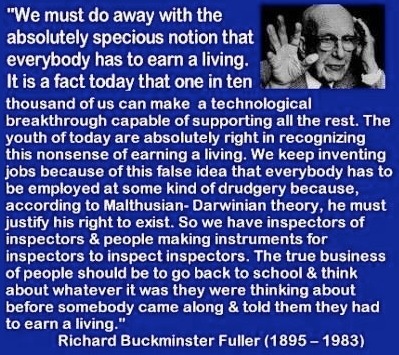Most people know that language evolves over time; it's obvious enough if you compare the English of Shakespeare or even of the Victorian era with present-day English. But the internet is changing the way language changes. In hindsight this should have been foreseeable. Language exists for communication, and the internet is a communication medium whose character is in many ways unprecedented.
Internet communication has three distinctive features which are influencing the way English changes. The first and most obvious is that it is typed, not spoken. The second is that it is instantaneous, allowing some innovations to quickly proliferate globally from a single source (an example would be the word
pwned, which seems to have originated a few years ago from a typo made by some one individual somewhere, but is already almost universal). Finally, much of the English-using population on the internet -- probably the great majority -- consists of non-native speakers. Popular culture is discussed on the internet on a vast scale (by definition, if it's
popular culture), and internationally. While political discussions tend to take place within individual countries (because each country's political system and universe of issues and candidates is separate), for pop culture, nationality is pretty much irrelevant. A single common language is needed so that everyone can understand everyone else, and given the dominance of English in today's world, it has inevitably become the internet
lingua franca as well.
What I see proliferating across the internet is not exactly standard English as we've long known it, but a sort of
ad hoc hyper-modern dialect full of new expressions for all the now-essential concepts that didn't exist a decade or so ago. If you're like me, you've been gradually absorbing this over the last few years without quite realizing it. Pwned, blogosphere, selfie, wiki, cosplay, hashtag, gif, Singularity, lolcat, uncanny valley, spambot, emoticon, shipper, meatspace, femslash, incel, banhammer, Rule 34, twincest, headcanon, doxx, concern troll, reblog, bromance -- how many of these terms would you, or anyone, have understood just ten years ago? This dialect can bewilder uninitiated speakers of old-fashioned English who encounter it, and the presence of a few Japanese loan words further baffles those who, having finally worked out what
manga and
hentai refer to, are darkly suspicious of
yuri and
senpai. Curiously enough, Hyper-Modern English never seems to adopt words from any other foreign language except Japanese. Likely it's the influence of the anime subculture.
The fact that Hyper-Modern English is almost entirely written on keyboards rather than spoken explains the great profusion of acronyms -- in typing, not speech, they save a lot of time. Everyone knows what HTML and URL mean, but how many remember the original full phrases the letters stood for? They're essentially
words now -- in writing. So are ROFL, BBS, ISP, NSFW, AMV, YOLO, IRL, PI, FFS, IIRC, OTP, IP, AMA, OP, etc. I recently saw a centuries-old text referred to as "a masterpiece of FOAD". How long will it be before pronounceable acronyms like FOAD and PLOSTFU become simply "foad" and "plostfu" -- ordinary words, their origins forgotten? Remember, "laser" originated that way, and "AIDS" is getting there -- it's already written as a word ("Aids") in the UK, and pronounced as one everywhere.
Notice that this is
not merely slang; slang is casual (and transient) words which are merely
alternative ways of expressing meanings which standard words already
express. These are new words necessitated by new concepts (though many
of the acronyms are just faster ways of writing existing phrases). They also aren't "technical terms" in the sense of terms used only by experts on a specific technology. They're cultural terms. A language doesn't exist in a vacuum -- it's the product of a particular culture. In this case, the new language and the new culture are evolving (very rapidly) in parallel with each other. Technology is just the medium.
Will Hyper-Modern English influence the older standard that might now be called Meatspace English? It's probably inevitable. Purists have always resisted neologisms, but they almost always lose
when the neologism expresses a genuinely new meaning. Take "pwned", for example -- exactly the sort of word traditionalists are most likely to reject. Its etymology is a typo, its pronunciation is jarringly unpredictable from its spelling, and it's mostly used (for now) by people the fuddy-duddies sneer at. But -- when someone gets pwned, what exactly happened to him? He lost an argument? He was triumphed over? He was exposed as a phony? He was made a fool of? Those definitions come close, sort of, but none of them expresses
exactly what "getting pwned" means. Even the original "owned" suffers from ambiguity, since its primary meaning is rather different. So the purists will, I think, be unable to purge "pwned" from general usage. In fact, they'll be pwned by it.
Similarly, who said "such-and-such is now a thing" ten years ago? Nobody. Nowadays it's normal usage -- one might even say it's a thing -- because there's no other expression with
exactly the same meaning.
I rather think Shakespeare -- who was one of the great popularizers and language innovators of his day -- would approve.
[Image at top from
Vivifx AMV of I Ship It by Not Literally]








